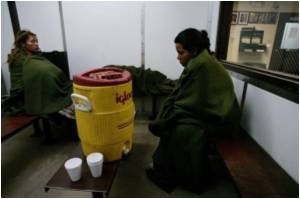- Self-injury is deliberate self-harm to cope with stressful situations.
- The person cuts, bruises or burns self but does not intend to seek attention or commit suicide.
- The Self-injury Awareness Day brings our attention to this condition which may affect any of our near and dear ones.
Intent of Self-injury
The person who injures themselves does so, to cope up with a stressful or an extremely emotional condition. The injury causes pain and diverts the person’s attention to it. There is a physiological basis for this as well. Any injury, either inflicted by self or by others, releases hormones called endorphins in the body. Their main function is to reduce the pain, but they also have some mood-elevating properties. It is this pleasurable feeling that the person seek when they injure themselves. Unfortunately, with time, the effect of the endorphins reduces, and the patients need to inflict deeper wounds to get the same effect.Awareness of Self-injury
Awareness of self-injury is extremely important so that you can recognize it in your near and dear ones, and help them out of it. Also, if people who injure themselves are aware of their habit, they can reach for help. Here are some of the facts that you should be aware of:- The practice of self-injury may be followed by children, teenagers as well as adults. People of all age groups suffer from stress, and may adopt different ways to cope, including self-injury.
- One must remember that stress is the body’s response to an external stimulus. The extent of the stress depends on the individual’s personality and coping ability; it does not matter if the external stimulus is major or minor.
- Worries in school or bullying, may sound irrelevant to adults, but they could be a big issue to children. Therefore, do not ignore signs of self-injury even if you notice them in your child.
- The person who injures self usually does not want to commit suicide nor wants to seek attention. It is only a coping mechanism which could stop after some time. However, severe self-injury could result in death
- Do not appear shocked or confront a person with the condition and ask them to stop the habit; it could only worsen the underlying stress. A heart-to-heart talk could help depending on the patient’s age and mental status.
- The affected person should be encouraged to adopt other healthy methods to cope up with difficult situations, which can substitute this unhealthy behavior. A counselor could be of particular help, especially, if you as a guardian or a friend do not know how to deal with it.
Finally, love, and spend time with your affected close ones, and remind them that they are not alone. This can play a major role in bringing the patient out of the self-harming behavior.
Facts on Self-Harm
- Around 13% of young people between the ages of 11 and 16 may try to hurt themselves on purpose at some point but the actual figure could be much higher.
- Children exposed to others’ self-harm may be more likely to begin harming themselves.
- The number of girls under 18 who have needed hospital treatment after poisoning themselves has gone up from 9,741 in 2005-06 to 13,853 – a rise of 42% – figures collated by NHS Digital.
- The prevalence of self-harm in people with eating disorders is thought to be about 25%,
- Between 20-30% of people with autism injure themselves in some way.
- LifeSIGNS – Self-Injury Guidance & Network Support - (http://www.lifesigns.org.uk/)










